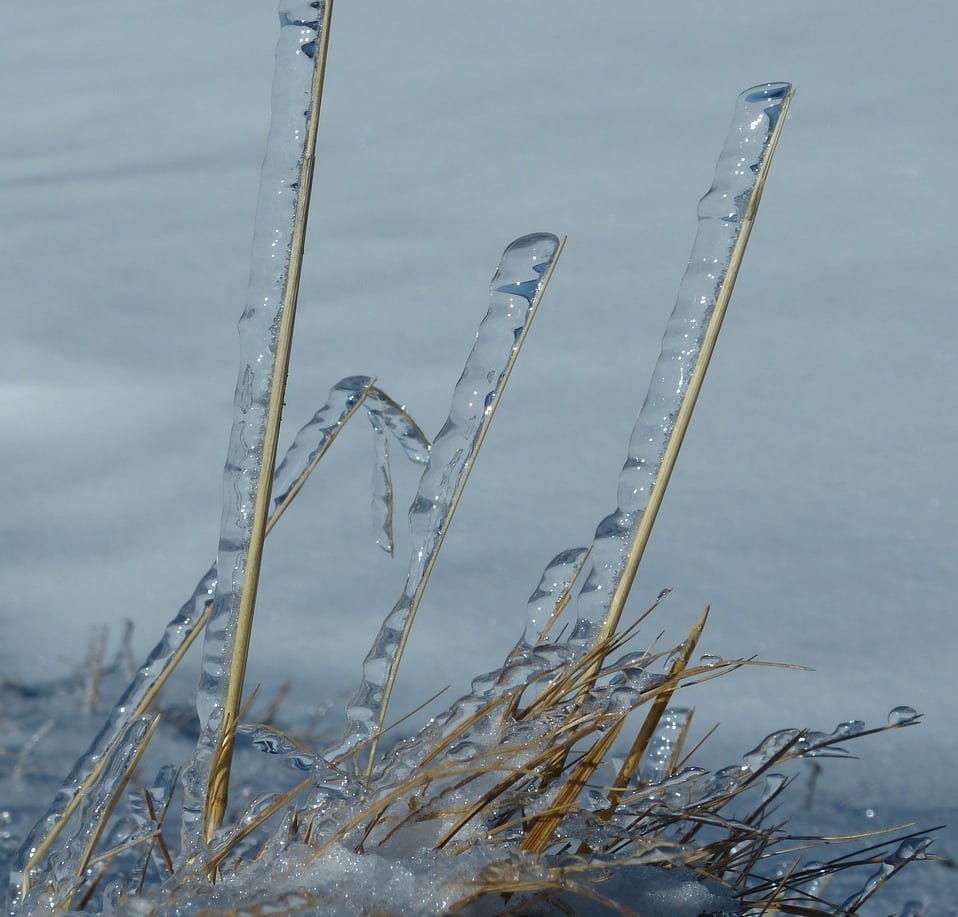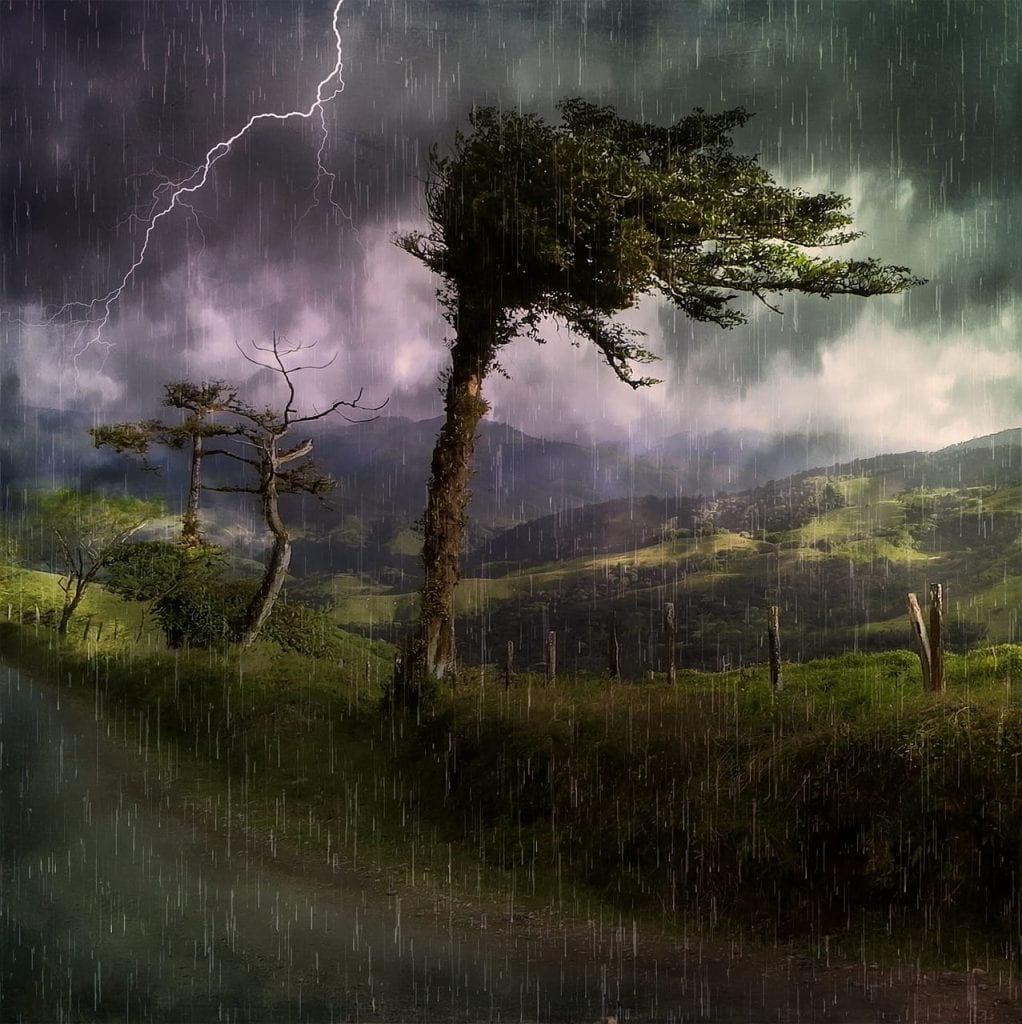German Nouns, Verbs and Adjectives for Describing the Weather 🌦️
Bildlexikon: Das Wetter
Masculine Nouns ♦ Feminine Nouns ♦ Neuter Nouns ♦ Plural Nouns ♦ Verbs ♦ Adjectives
Die Abkühlung naht. – The cool change is coming.
abkühlen – to cool down
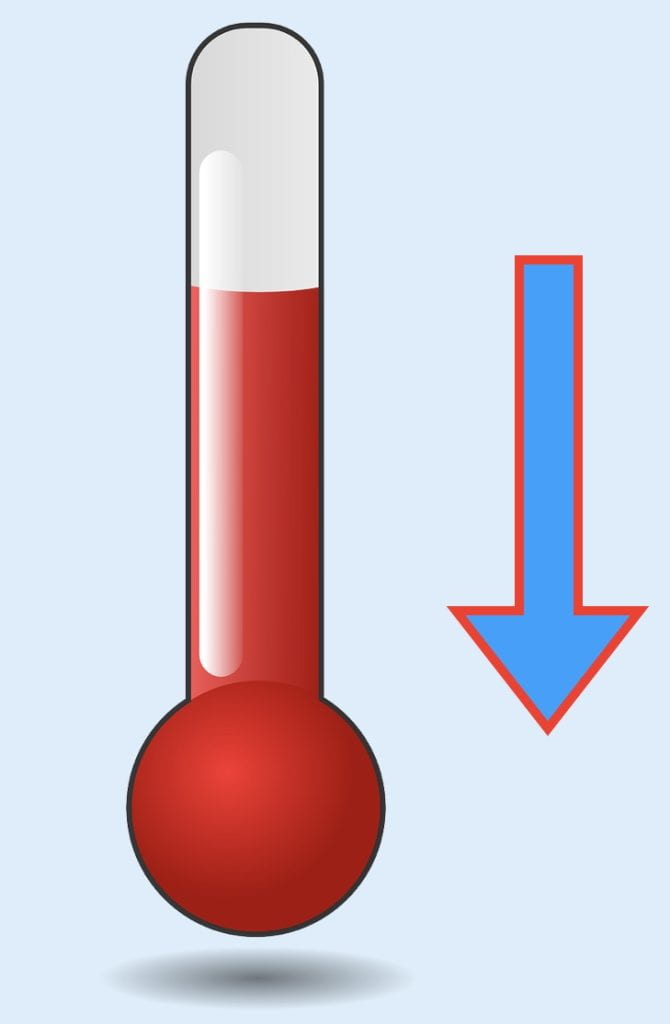
Nach den hohen Temperaturen in den letzten drei Tagen kühlt es heute endlich ab. – After the high temperatures in the last three days, it will finally cool down today.
der Blitz – lightning
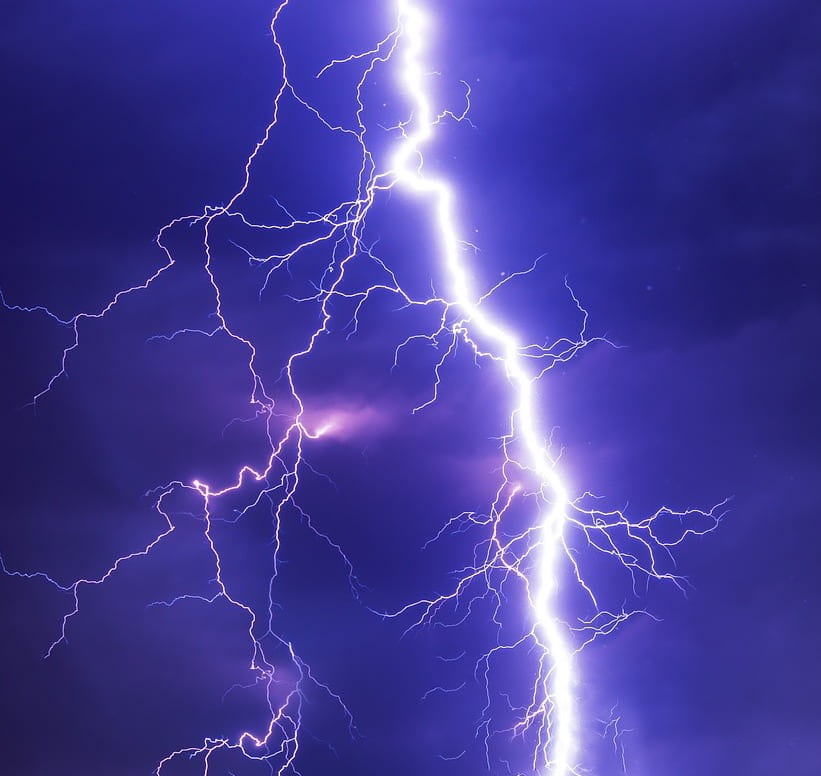
Image by PayPal.me/FelixMittermeier from Pixabay
Nach dem Blitz hört man den Donner. – After the lightning you hear the thunder.
der Bodennebel – ground fog, low-lying fog
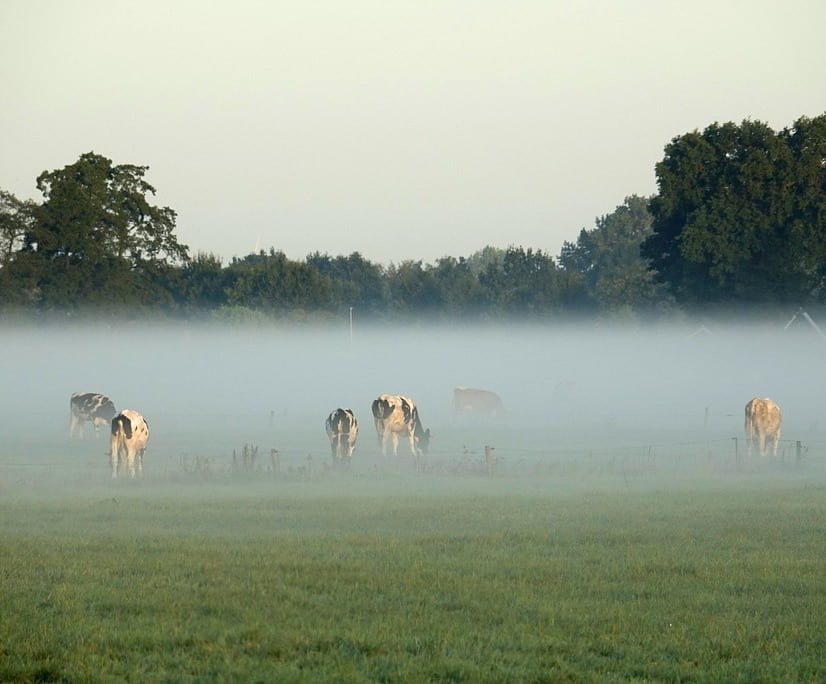
Image by Aart Beijeman from Pixabay
Auf diesem Bild stehen die Kühe mitten im Bodennebel. – In this picture, the cows are standing in the middle of low-lying fog.
die Brise – breeze
eine leichte, frische oder steife Brise – a light, fresh or strong breeze

Image by Photo Mix from Pixabay
Eine leichte Brise weht vom Meer her. – A light breeze is blowing from the sea.
der Donner – thunder
Der Donner rollt oder kracht. – The thunder rolls or cracks.
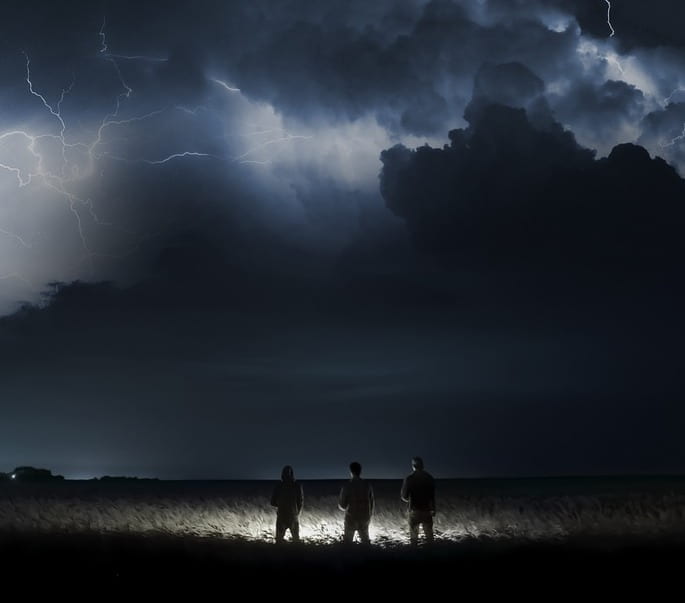
Image by Elias Sch. from Pixabay
Bei einem Gewitter gibt es immer Blitz und Donner. – In a storm, there’s always lightning and thunder.
der Frost – frost
frostig – frosty
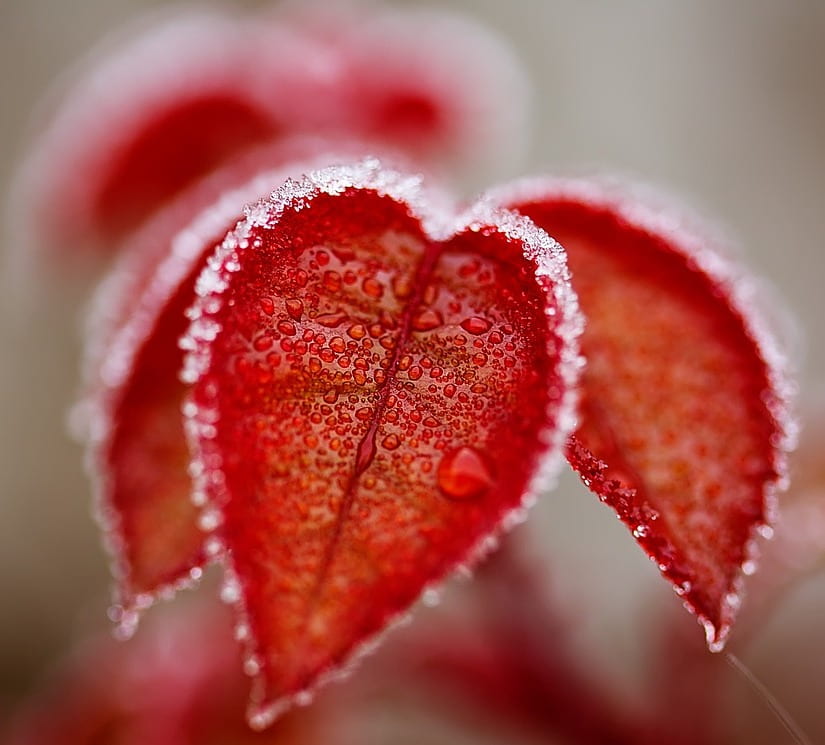
Image by Perez Vöcking from Pixabay
Es ist ein frostiger Tag. Die Temperatur liegt unter dem Gefrierpunkt. – It’s a frosty day. The temperature is below zero. (US: below freezing point)
frieren – to freeze, feel extremely cold
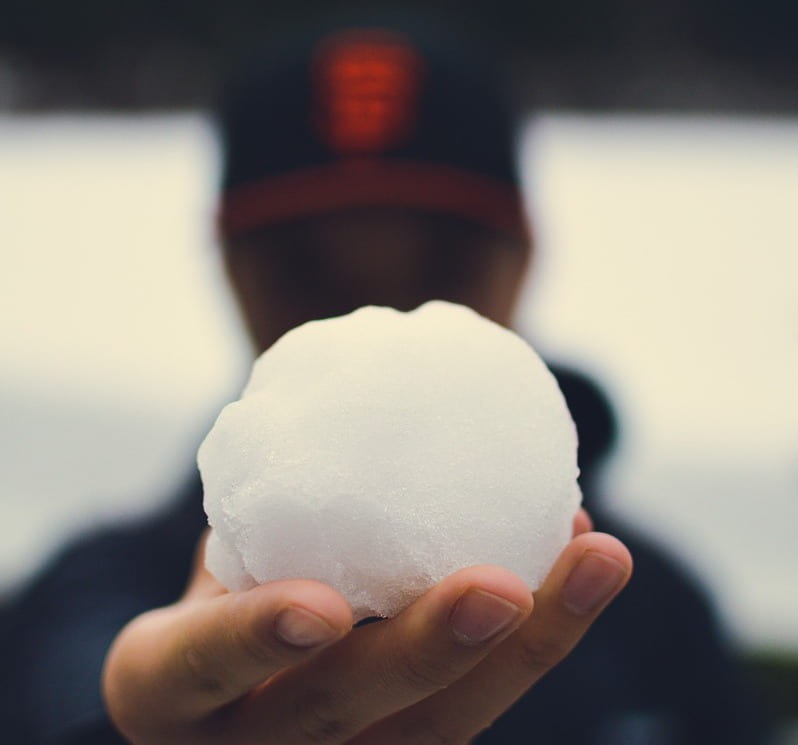
Image by StockSnap from Pixabay
- Ich friere an den Händen. – My hands are freezing.
- Ich friere. / Mich friert es. – I’m freezing.
- Es friert. – It’s freezing.
das Gewitter – (thunder)storm
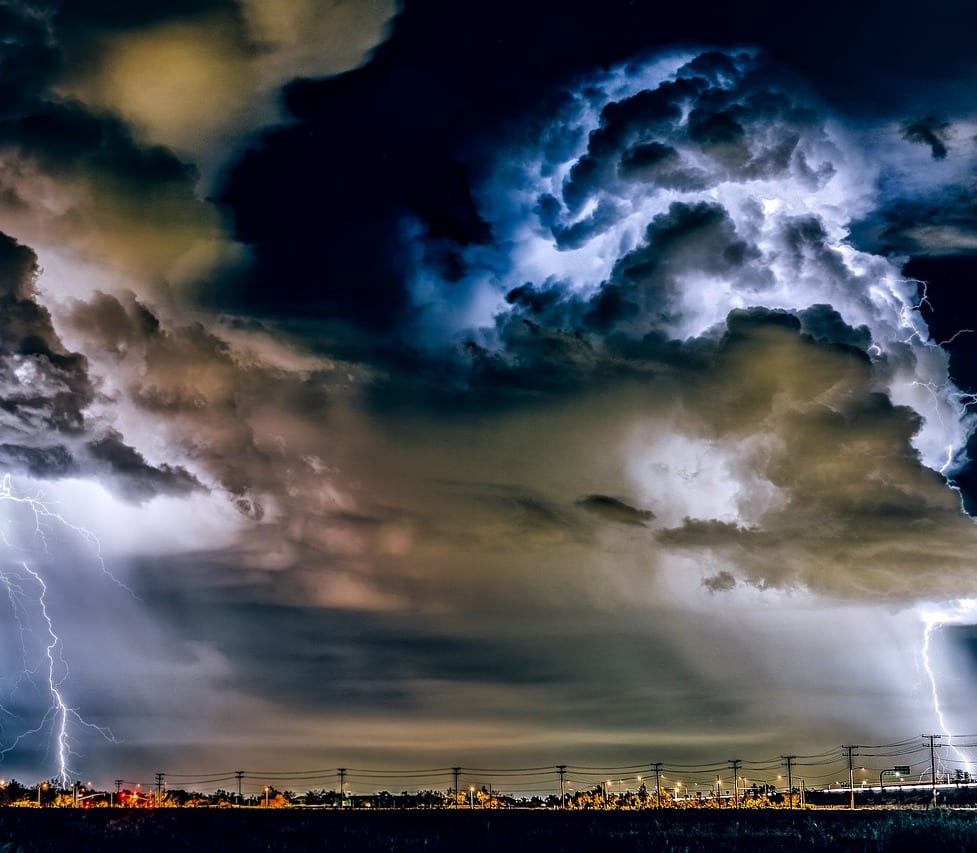
Image by David Mark from Pixabay
– Heute gibt es bestimmt ein Gewitter. – Oh nein, der Donner wird dem armen Hund Angst machen. – There’s bound to be a thunderstorm today. – Oh no, the thunder will frighten the poor dog.
der Grad – degree
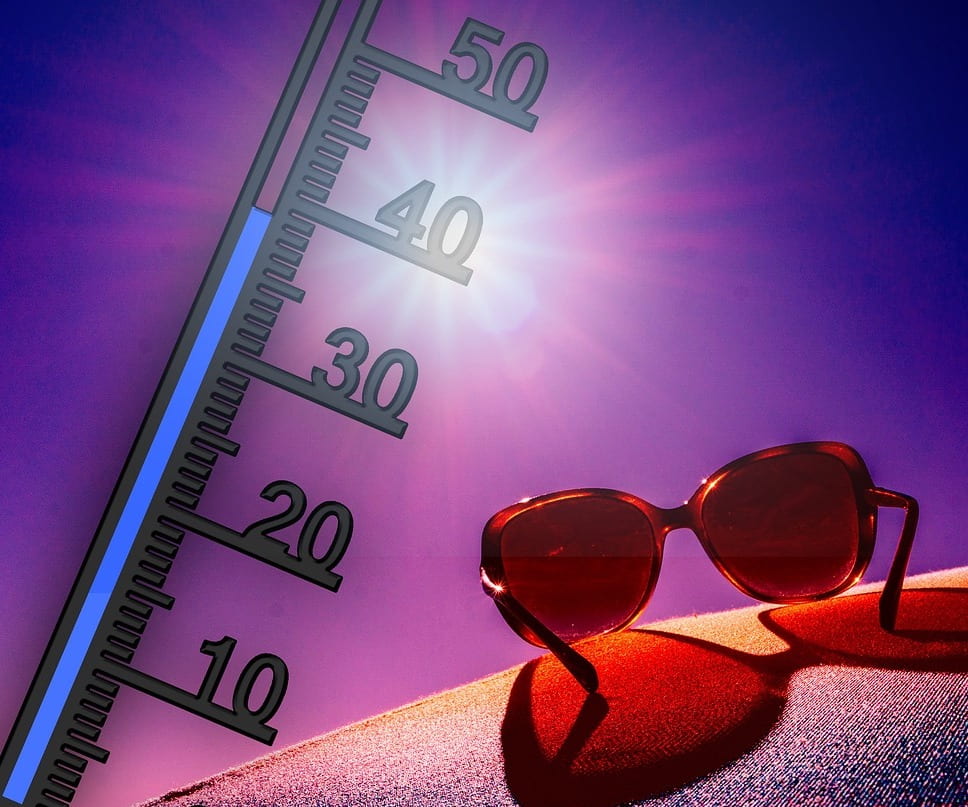
Image by Gerd Altmann from Pixabay
- Es sind 39 Grad. – The temperature is 39 degrees.
- Bei 12 Grad brauchst du mindestens einen Pulli, vielleicht auch eine Jacke. – With a temperature of 12 degrees, you need at least a jumper, maybe a jacket as well.
der Hagel – hail
hageln – to hail
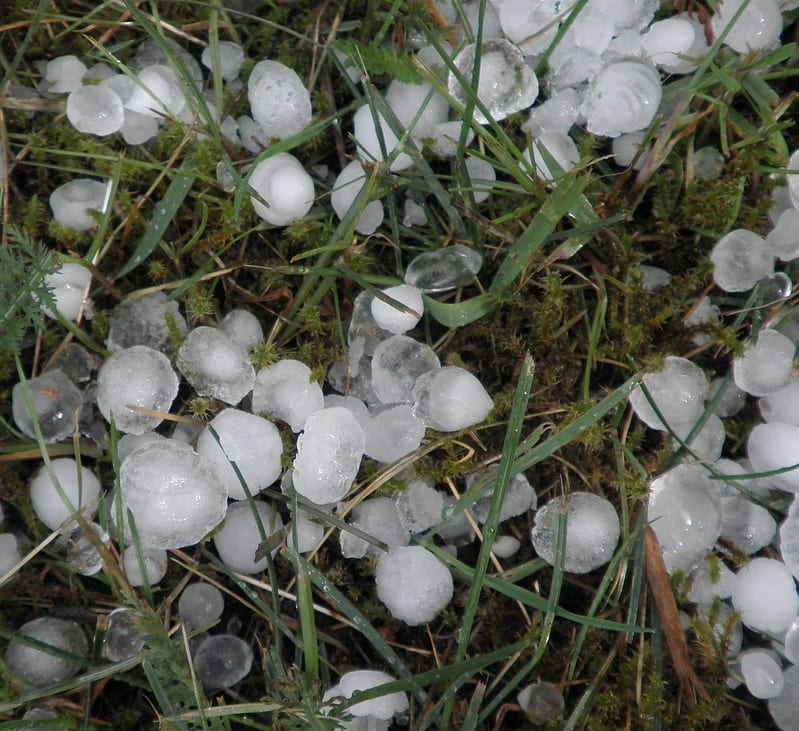
Image by Hilde Stockmann from Pixabay
Es hagelt. – It’s hailing.
Der Hagel vernichtet die Ernte. – The hail is destroying the crop.
die Hitzewelle – heatwave
heiß – hot
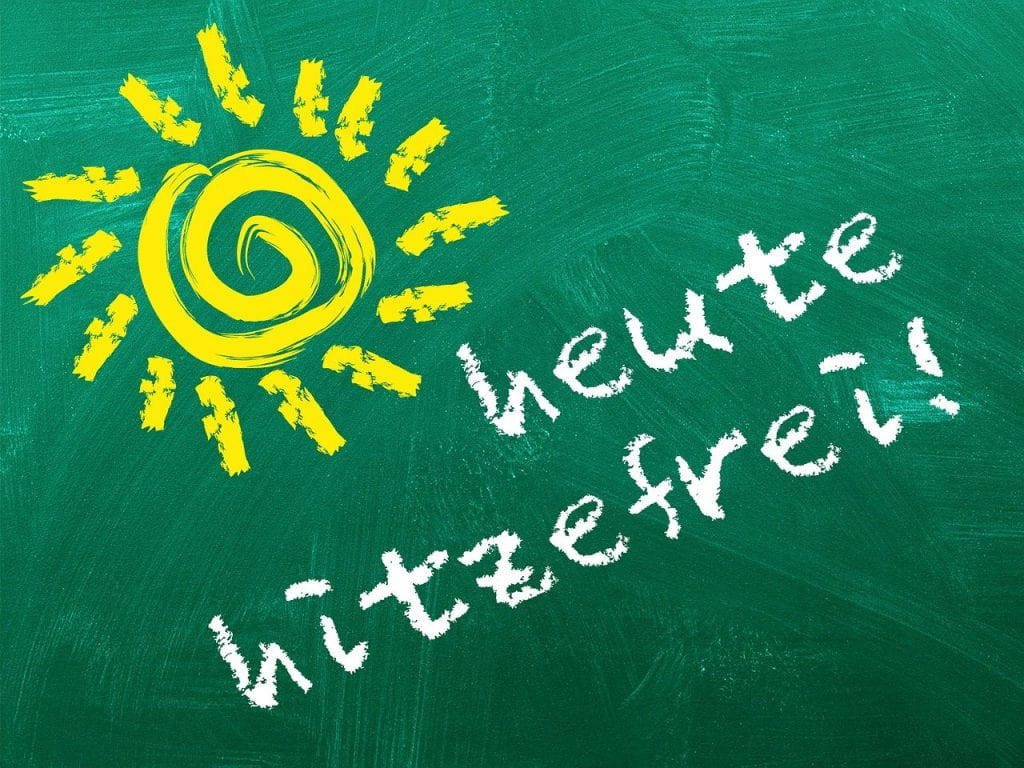
Image by Stefan Schweihofer from Pixabay
Bei einer Hitzewelle in Deutschland dürfen Schüler manchmal zu Hause bleiben. Sie haben Hitzefrei*. – During a heatwave in Germany, students are sometimes allowed to stay home. They have a day off from school because of the heat.
*This is sadly becoming less common. Such a civilised idea.
die Jahreszeit – season
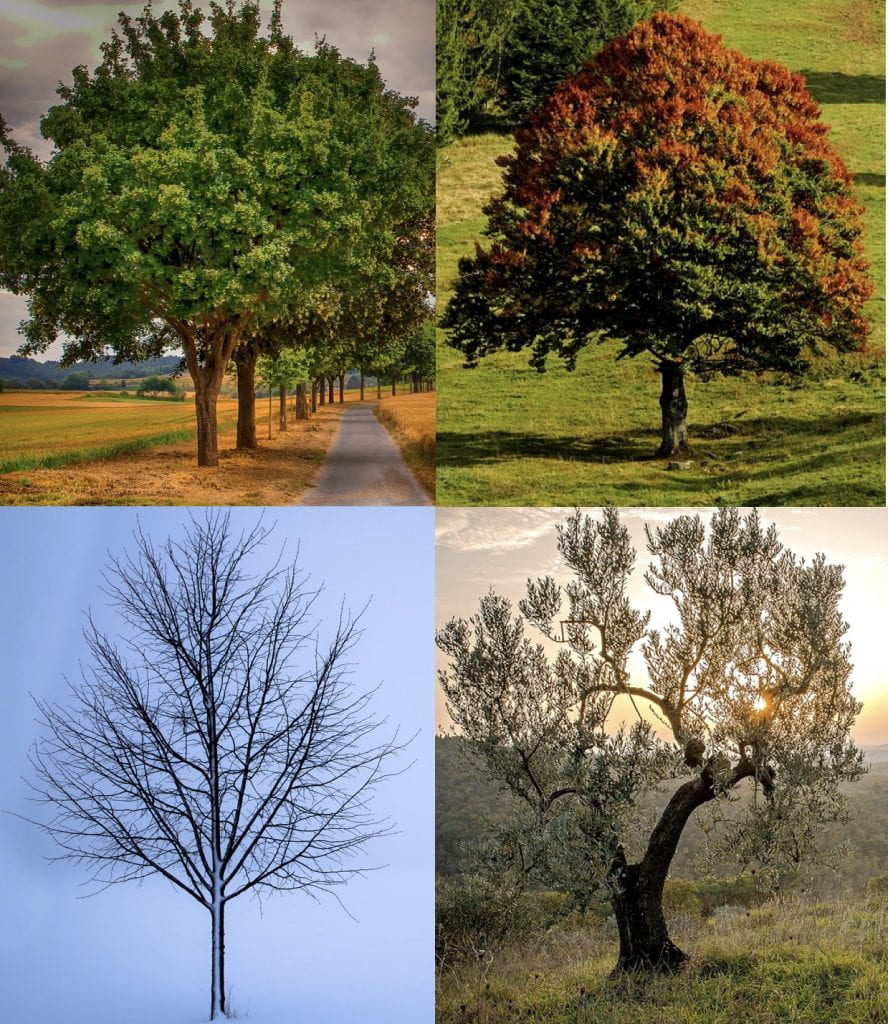
Die vier Jahreszeiten sind Sommer, Herbst, Winter und Frühling. – The four seasons are summer, autumn, winter and spring.
Im Sommer ist es normalerweise heiß. Im Winter ist es oft kalt. – In summer it is usually hot. In winter it is often cold.
kühl – cool | kalt – cold

- Mir ist kalt. – I’m cold. Literally: To me it is cold.
- Mir wird kalt. – I’m getting cold.
- Mir is kühl. – I feel a bit chilly.
- Ist dir kalt? – Are you (feeling) cold?
die Luftfeuchtigkeit – humidity, dampness
feucht – moist, humid (see also schwül below)
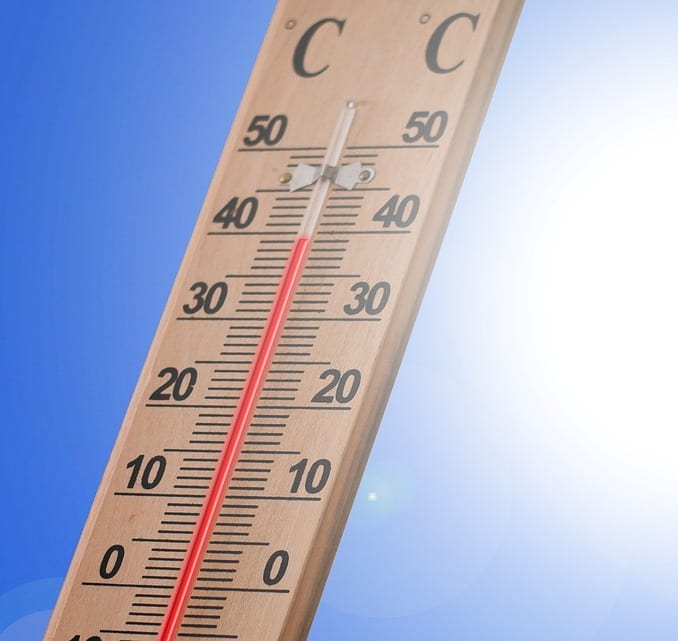
Image by Gerd Altmann from Pixabay
Die feuchte Sommerhitze ist manchmal schwer zu ertragen. – The humid heat of summer is sometimes hard to bear.
Die Luftfeuchtigkeit in den Tropen ist hoch. – The humidity in the tropics is high.
das Matschwetter – weather leading to mud, slush and puddles
matschig – slushy, muddy
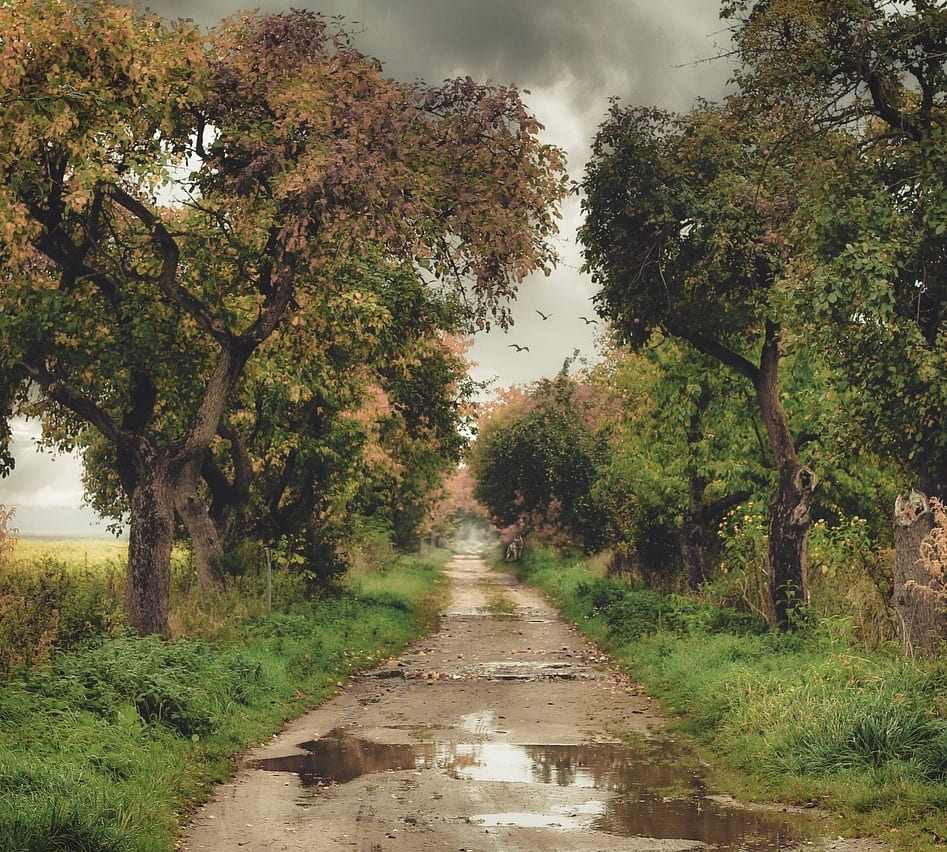
Image by Gundula Vogel from Pixabay
Bei Matschwetter sind die Landstraßen oft schlammig und es gibt viele Pfützen. – In this kind of slushy weather, the country roads are often muddy and there are lots of puddles.
der Nebel – fog
nebelig – foggy
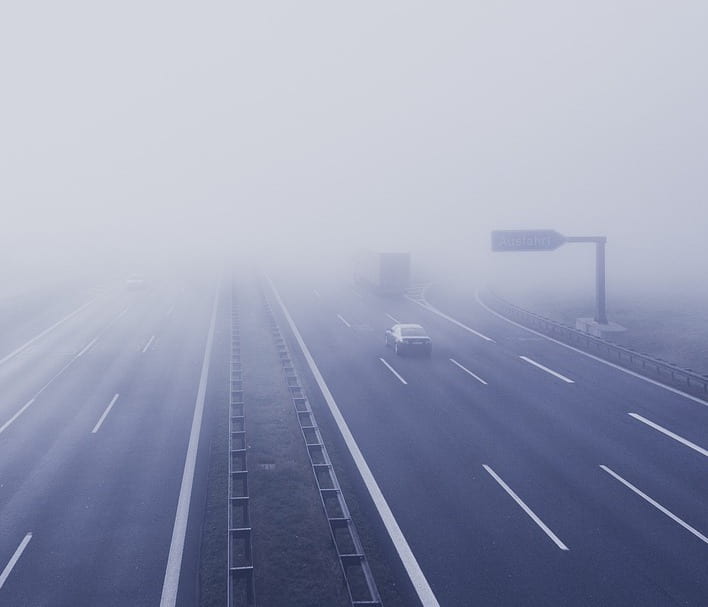
Image by Markus Spiske from Pixabay
Bei dichtem Nebel müssen Autofahrer sehr vorsichtig sein. – In thick fog, drivers have to be very careful.
der Nieselregen – drizzle
nieseln – to drizzle
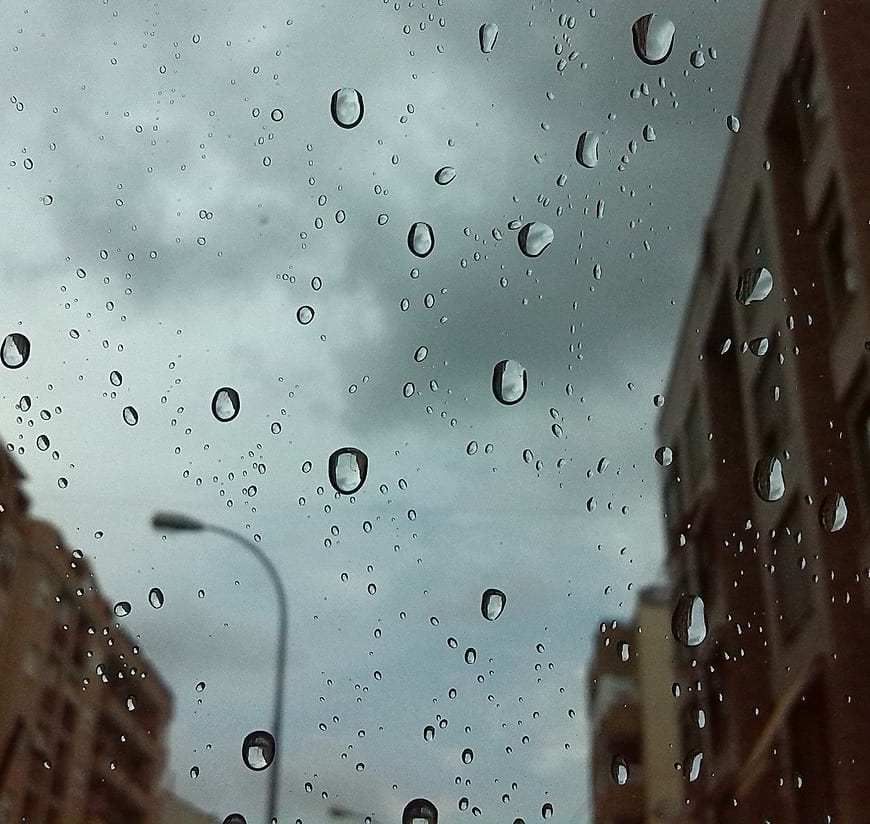
Image by Margarita Morales Esparza from Pixabay
- Es nieselt. – It’s drizzling.
- Bei diesem Nieselregen kann man nichts planen und keinen Spaß haben. – In this drizzling rain you can’t plan anything or have any fun.
der Regen, der Regenbogen, der Regentropfen – rain, rainbow, raindrop
regnerisch – rainy | regenarm – dry, lacking in rain
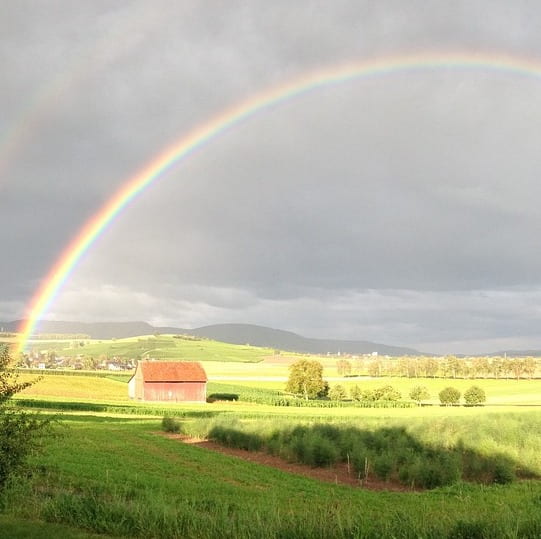
Nach dem Regen entsteht oft ein Regenbogen. – After the rain, a rainbow often forms.
der Schnee – snow
schneien – to snow | schmelzen – to melt
schneebedeckt – covered with snow
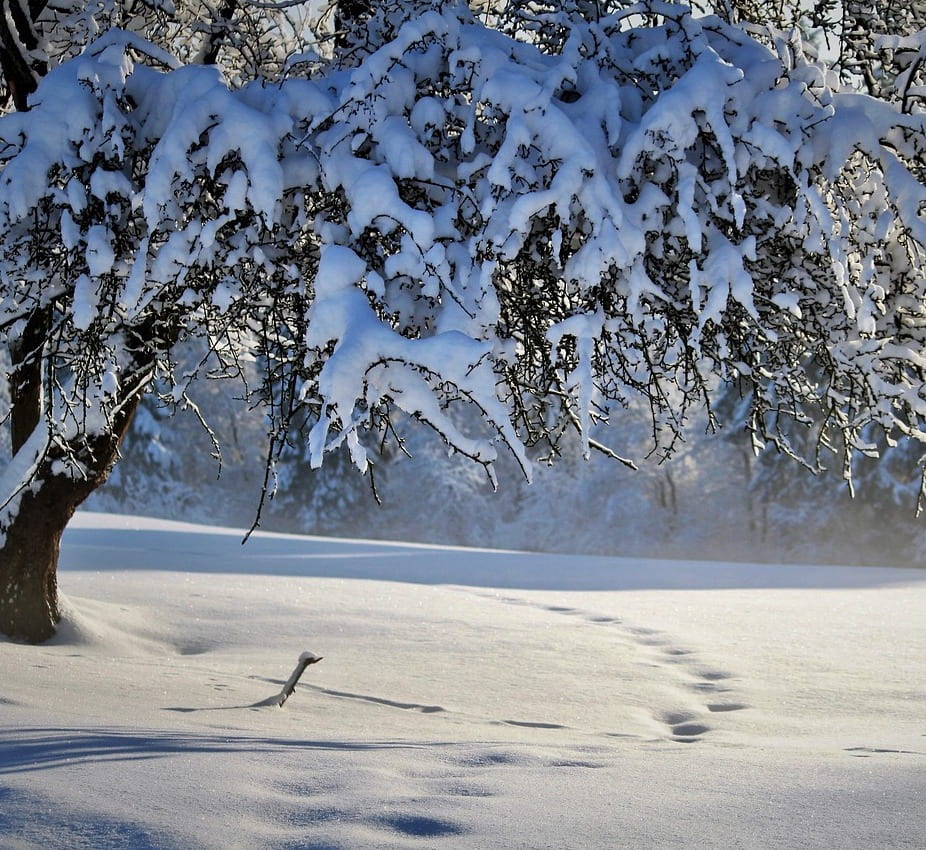
Es schneit. – It’s snowing.
Die Landschaft ist mit Schnee bedeckt. – The countryside / landscape is covered with snow.
schwül – humid, muggy, sultry

Image by Isabela Isa from Pixabay
Heute ist es furchtbar schwül*. Ich bin in Schweiß gebadet! Wollen wir schwimmen gehen? – It’s terribly muggy today. I’m dripping with sweat. Shall we go for a swim?
*To distinguish between schwül – humid and schwul – gay, think of the dots on the umlaut as drops of sweat.
der Sonnenschein – sunshine
scheinen – to shine
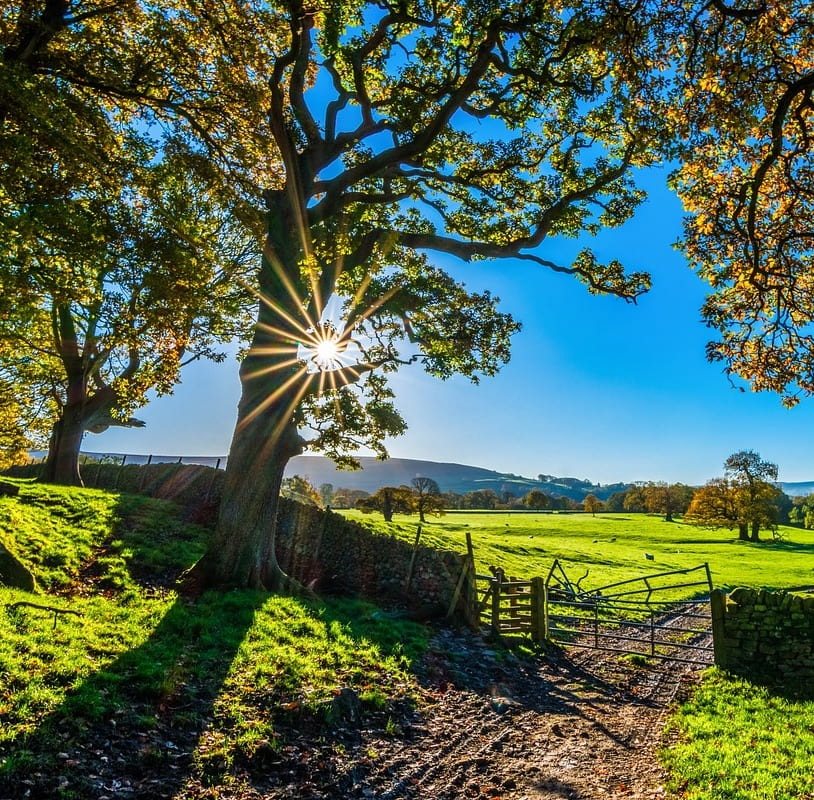
Image by Tim Hill from Pixabay
- Die Sonne scheint. – The sun is shining.
- Bei strahlendem Sonnenschein sieht die Landschaft schön aus. – In the radiant / glorious sunshine, the landscape looks beautiful.
die Temperatur – temperature
hoch – high ↔ niedrig – low

Image by Oleksandr Pidvalnyi from Pixabay
Bei hohen Temperaturen geht man gern schwimmen. Bei niedrigen Temperaturen sitzt man lieber am Kamin. – When temperatures are high, people like to go swimming. When temperatures are low, people prefer to sit by the fire.
der Wind – wind
wehen – to blow
windig – windy ↔ windstill – calm
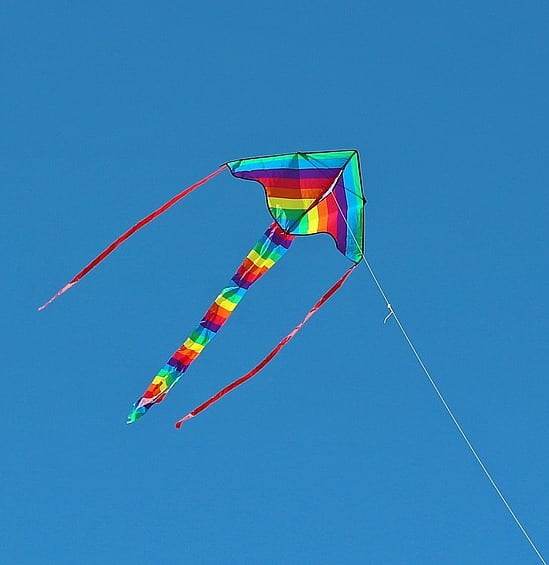
Image by Myriams-Fotos from Pixabay
Heute weht ein starker Wind. – A strong wind is blowing today.
die Wolke – cloud
wolkig – cloudy ↔ klar – clear
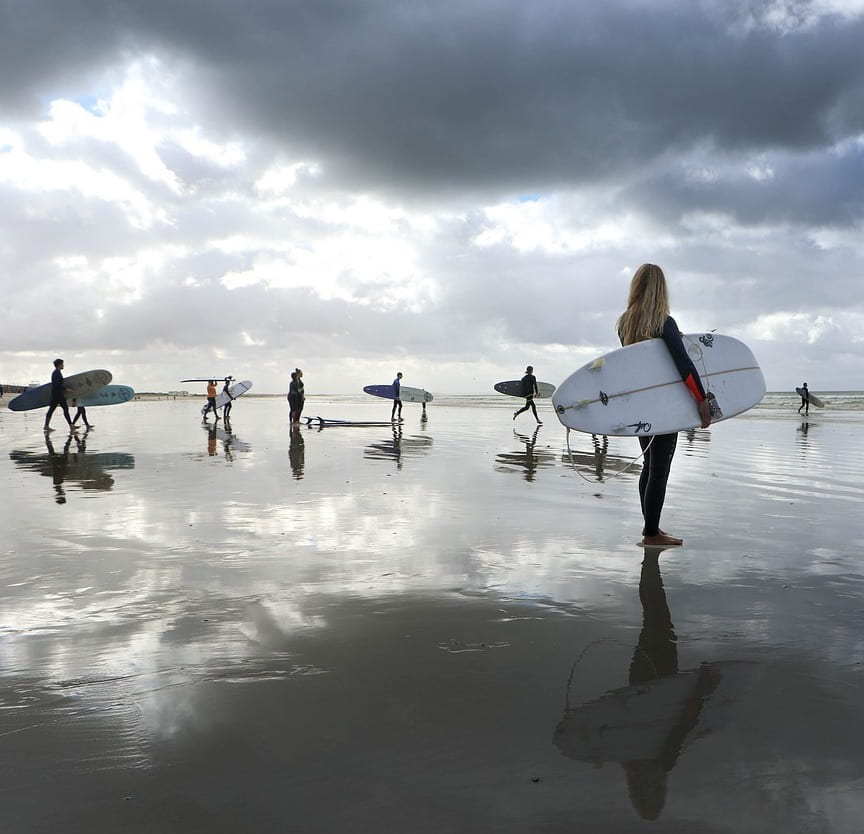
Image by Manie Van der Hoven from Pixabay
Der Himmel ist mit Wolken bedeckt. – The sky is covered with clouds.
der Zyklon – cyclone
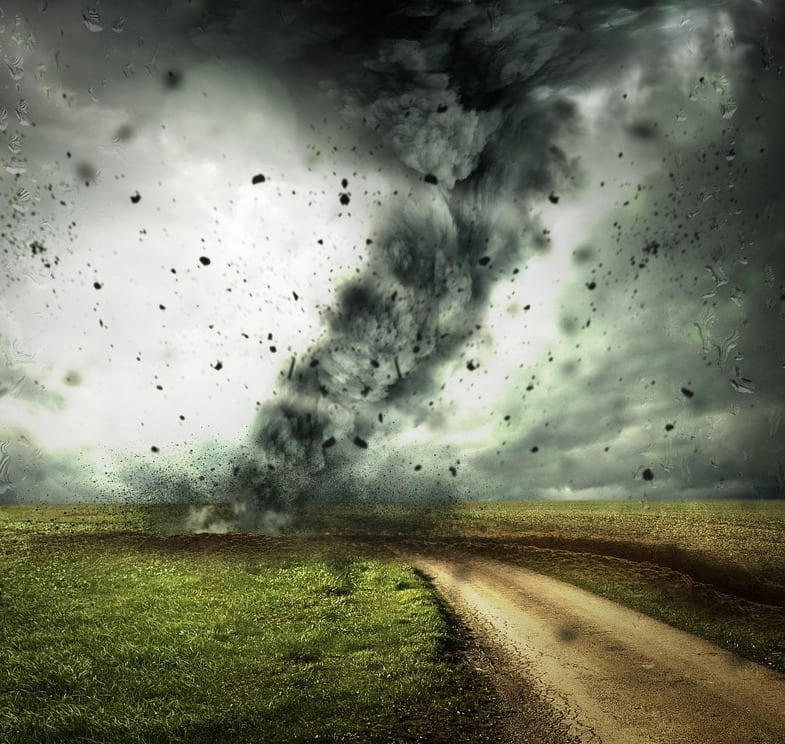
Image by 0fjd125gk87 from Pixabay
Zyklone sind gewöhnlicher in den Tropen. – Cyclones are more common in the tropics.
A Shortlist of Adjectives
| frostig – frosty 🧊 | heiß – hot 🥵 | herrlich – heavenly 🏝️ |
| kalt – cold 🥶 | klar – clear 🔹 | kühl – cool 🔹 |
| mild – mild 🙂 | regnerisch – rainy 🌧️ | schlecht – bad ⬇ |
| schwül* – muggy 💦 | sommerlich – summery 🌻 | sonnig – sunny 🌞 |
| strahlend – glorious 🌅 | stürmisch – stormy ⛈️ | warm – warm 🌡️ |
*The easiest way to distinguish schwül – humid, muggy from schwul – gay is to think of the dots on the umlaut as drops of sweat.
Quizzes
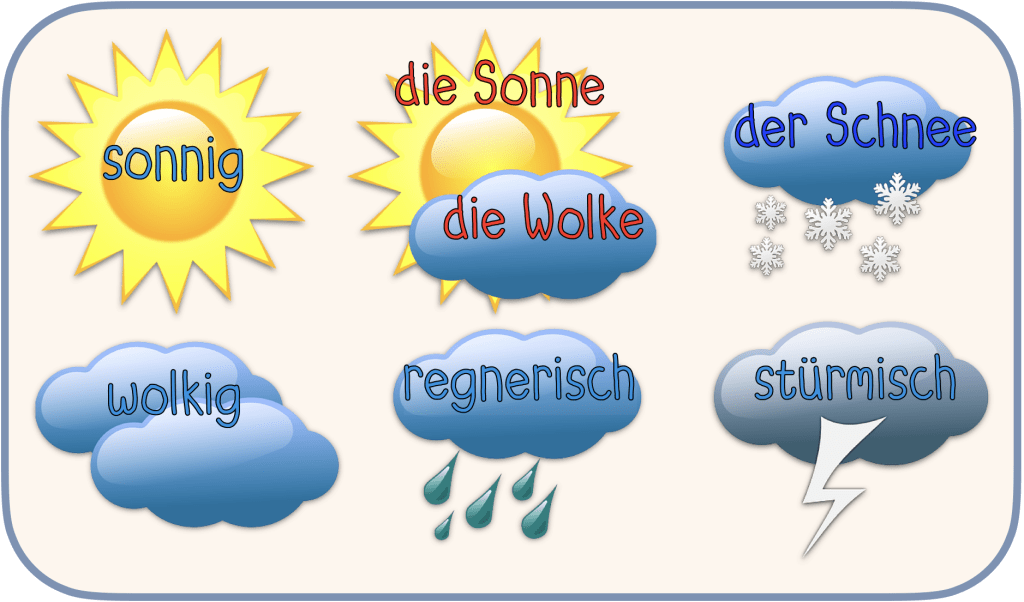
Multiple Choice Quiz: Das Wetter🌦️ | Weather
This quiz provides questions based on the vocabulary above. Click on the 💡 on the top left of the quiz screen to read a vocabulary list that you can copy for your notes, if desired.
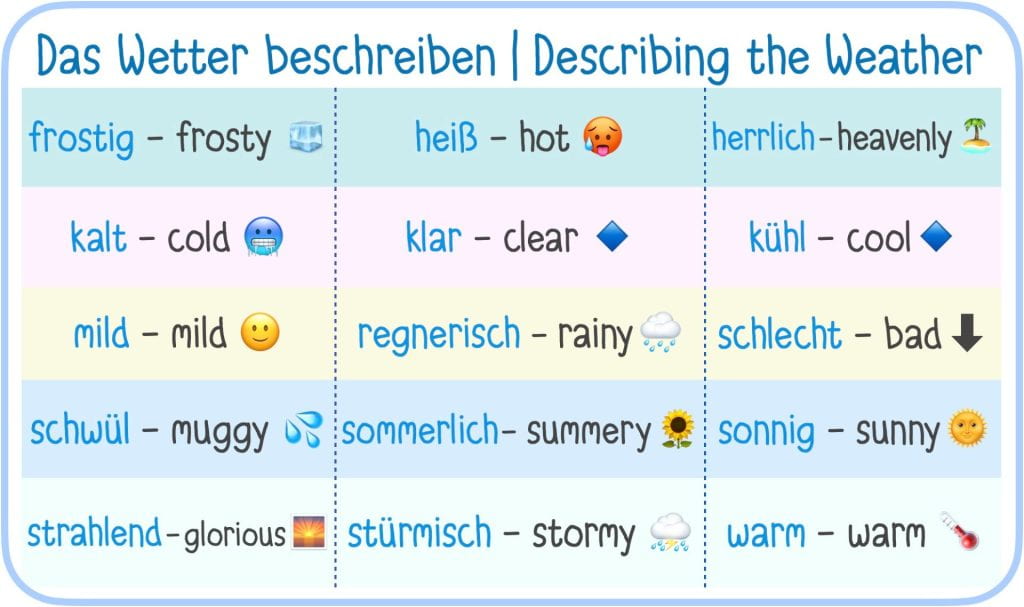
Fill the Blank Quiz: Das Wetter beschreiben🌦️ | Describing the Weather
Practise using the adjectives for describing the weather. Click on the 💡 on the top left of the quiz screen to read a vocabulary list that you can copy for your notes, if desired.
